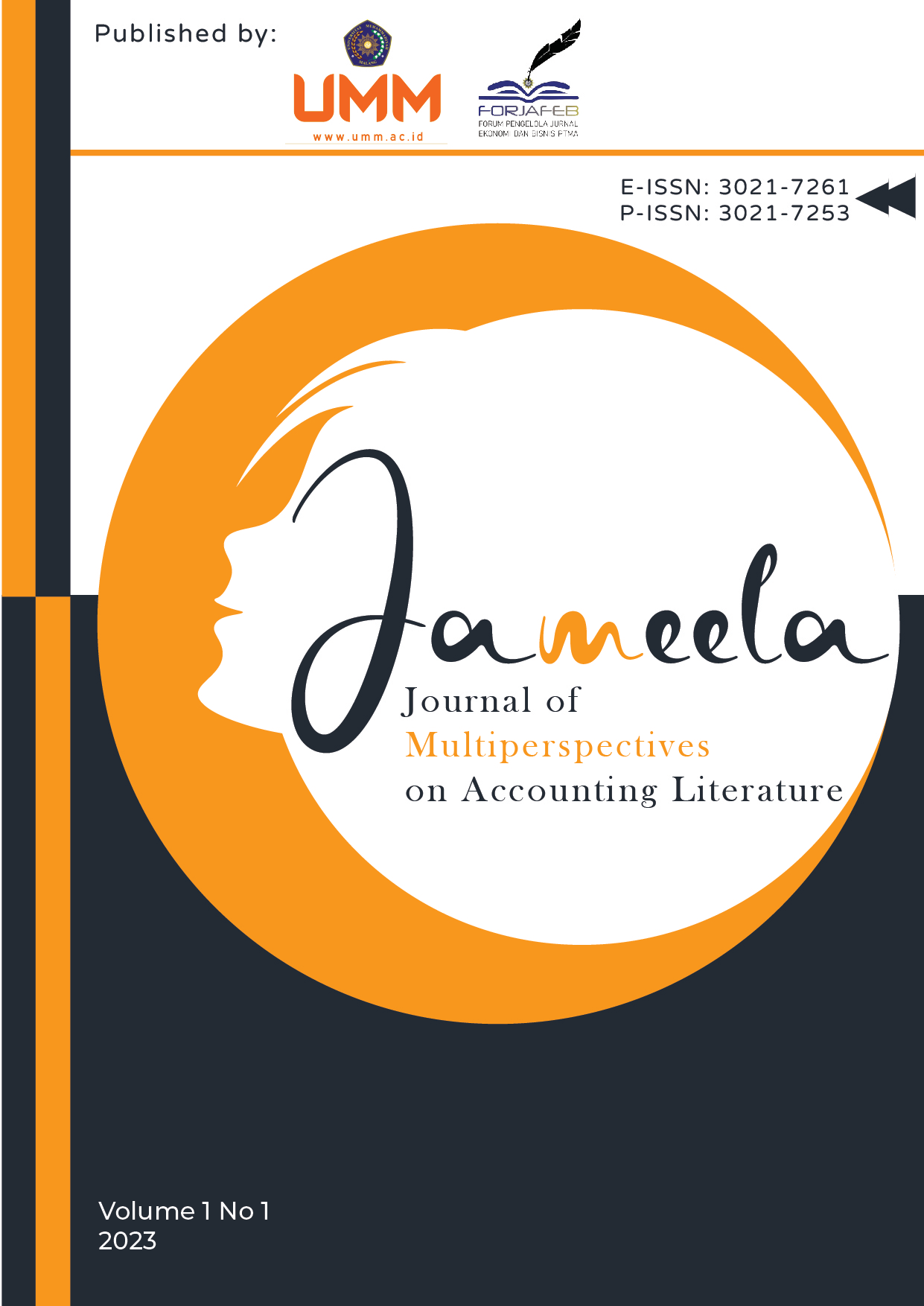Environmental Cost Accounting Practices in Waste Management
DOI:
https://doi.org/10.22219/jameela.v1i1.27921Keywords:
Environmental Accounting, Environmental Costs, Environmental Accounting PracticesAbstract
Purpose: This study aims to determine and analyze how TPST 3R Mulyoagung Bersatu discloses waste management and applies environmental cost accounting in the identification, recognition, measurement, presentation and disclosure of environmental costs in the financial statements, and classifies environmental costs into environmental prevention costs, environmental detection costs, internal environmental failure costs and external environmental failure costs.
Methodology/approach: This research was conducted at the Integrated Waste Management Site (TPST) 3R Mulyoagung Bersatu, Dau District, Malang Regency. This research is a qualitative research. In this study using primary and secondary data. Primary data was obtained through interviews, documentation and observation in the field. While secondary data is obtained from data or documents of TPST 3R Mulyoagung Bersatu.
Findings: The results of this study are that TPST 3R Mulyoagung Bersatu recognizes costs using the cash basic method and environmental costs are recognized as a component of production costs, namely general operational costs and fuel, employee costs and maintenance costs. Environmental costs at TPST 3R Mulyoagung Bersatu are environmental prevention costs; salary costs and costs of cleaning equipment and cleaning materials, environmental detection costs; none, environmental internal failure costs; vehicle and machinery maintenance costs, building and infrastructure maintenance costs, social costs, external failure costs; none.
Practical implications: the results of this study have implications for the development of environmental cost accounting practices in waste management.
Originality/value: the research results show that the environmental costs accounting is very relevant and important to waste management because it can evaluate and reduce the environmental impact of the waste management process.
Downloads
Downloads
Published
How to Cite
Issue
Section
License
Copyright (c) 2023 Ira Mustika, Tri Wahyu Oktavendi, Muhammad Wildan Affan

This work is licensed under a Creative Commons Attribution-NonCommercial-ShareAlike 4.0 International License.






























